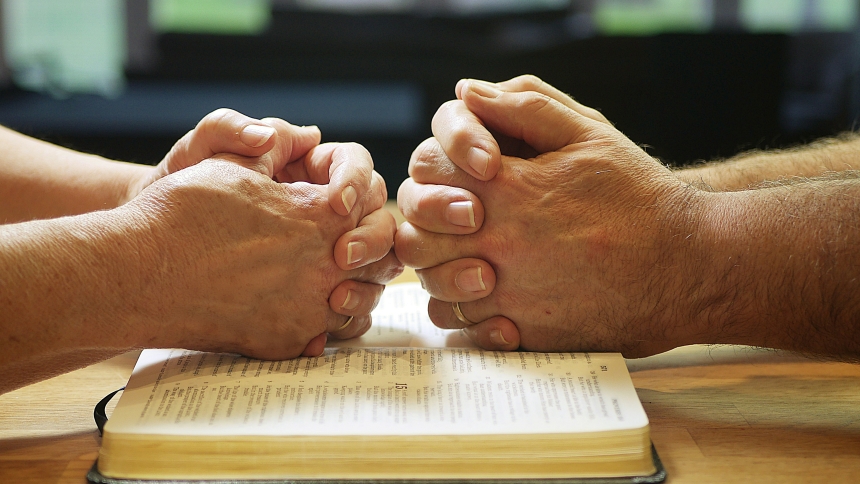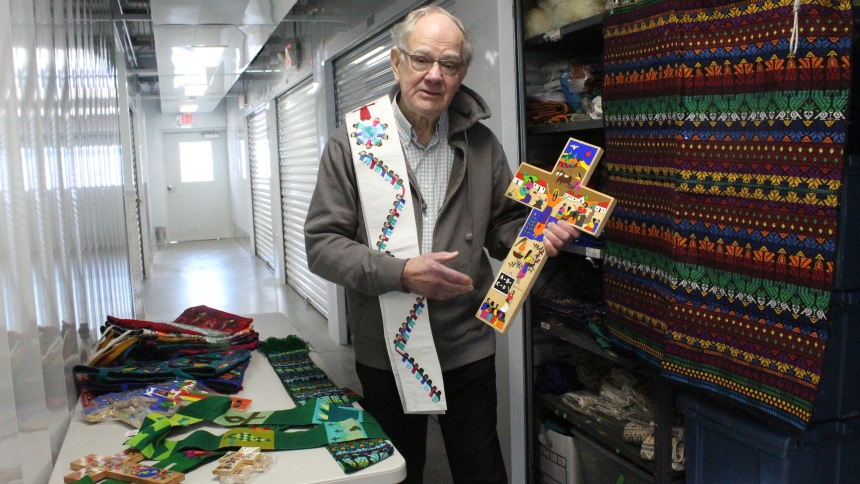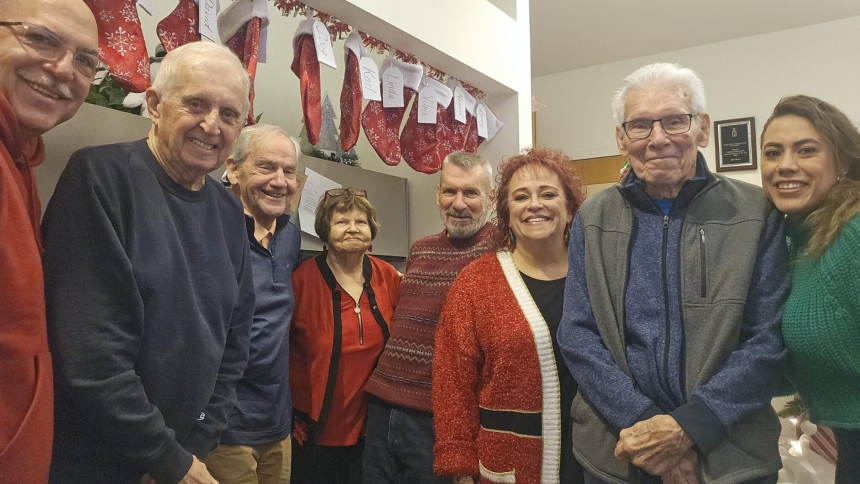
The idea of discussing religion with another person can often generate feelings of uneasiness. One might feel inadequate to talk on the subject or fear the conversation may lead to strong disagreement. By keeping just a few simple rules in mind, one doesn’t have to be afraid to share their faith, especially when approached by someone who is already interested in learning more about what it means to be a Catholic.
Jamie Sandona, pastoral associate and director or religious education at St. John the Baptist in Whiting, has noticed that as parents enroll their children in a Catholic School or faith formation program, they know that their child will be exposed to and prepared for the sacraments into the faith. Through the process, the parents’ interest is piqued, and the conversation about becoming Catholic sometimes begins.
“I often speak about adult initiation into the Church during the formation sessions, and many times a parent will speak with me after the session, inquiring about the process,” she said.
Another way people are drawn into the Catholic faith is through programming, such as Alpha, Bible studies and other formation activities. They read about the programs through social media posts, hear about them through word of mouth, and form relationships with those who are in attendance and continue to explore these faith formation options.
Still, probably the most common way people become interested in the Catholic faith is through the relationships they have made with those who are already practicing their Catholic faith.
Deacon Mike Foster, who serves St. Paul in Valparaiso, explained there is almost always a particular person who has served as a model or as inspiration for someone drawn to the Church. Sometimes it's a friend or spouse, sometimes it's a family member, and sometimes it's not a person directly known to the inquirer, but rather a person admired from afar.
“In addition, the world in which we live is a cacophony of stimuli and distractions pulling in every opposite, imaginable direction which creates a longing for a place offering peace and answers to a feeling of 'not belonging' or of driftlessness,” he said
Deacon Foster continued, “When you come down to it, there are just as many answers for why people are drawn to Catholicism as there are people drawn to Catholicism. Every single person's story is different. That's why it's so very important to meet each inquirer ‘where they are.’”
Here are a few things to consider when talking to someone who inquires about about Catholic beliefs and practices:
1. Listening more – Many times it seems that if someone shows interest, it is tempting to respond right away, thinking, “How can I get them more involved with others?” In reality, it is more probable that they want to ease into learning at their own pace. Just be open to a conversation, willing to share the whys of your faith according to the interest of the inquirer.
2. Be present – Whether they know it or not, whether you know it or not, God has led them to you and the most important thing that any of us can do is to listen, to answer questions, and accompany that person. It all begins with presence. Be patient enough not only to listen, but to make it abundantly clear to that person that you are listening.
3. Do not correct – Remember that people who inquire come from all levels of understanding of the faith. Some of their information may or may not be correct. This is probably not the most opportune time to correct them, but rather share opportunities with them to learn more about the faith. And of course, what you know about the subject in a non-authoritative manner.
4. Be willing to share your personal faith journey – Avoid pontificating about the teachings included in the Catechism. Faith must be held up as the natural human response to the quest for meaning of life. Any direction taken should assist in developing a relationship with Christ, even if the person asking the questions hasn't yet realized it is the Lord knocking on the door. Remember the 'onion-theory' of Catholicism. When talking about faith, you have to peel that onion at the speed the person can absorb. Peeling the layers too quickly can lead to tears!
5. Live a visible life of faith – The Church does not send missionaries through neighborhoods on a 'door-to-door' quest as do Mormons or Jehovah Witnesses. So, to encourage others to see the beauty of faith can be reflected in several different ways of living out Gospel values in our modern society. Being unafraid to answer questions about our faith, welcoming new faces who appear at Mass and being willing to accompany someone to a parish meeting for people inquiring about the faith so they don't have to come alone are great examples of behavior that may attract people to learn more about our faith.
Sandona shared that when she is contacted by individuals interested in the Catholic faith, she begins conversations by asking a few simple questions: “What brings you here to us today?” “How can I help answer some questions for you?” “What is it that you are most interested in?” and “Can I pray for you or with you for the Lord to guide your steps?”
“I think it is most important to make sure we as parish leaders are approachable to all,” she said. “Sometimes we get so caught up in the daily responsibilities that we forget, people are looking for eye contact, a smile, or a simple hello to make them feel seen in an unfamiliar place.”
Deacon Foster said parishes must be ready and willing to invite someone who feels called to Catholicism to come and see regardless of when that might be.
“God's call is not restricted to human time constructs,” he said. “The best time for a person to begin a process which helps them to find a relationship with Christ is whenever they feel called. The minister's vocation is simply to avoid getting in Christ's way.”



